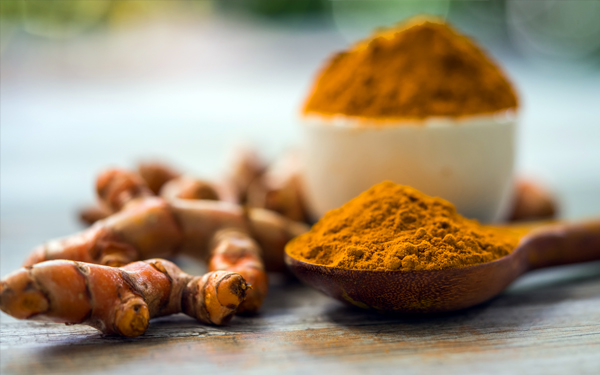Many people swear by turmeric for heartburn, stomach problems and flatulence. A recent study confirms that a trip to the spice rack is worthwhile from a medical perspective.
As a spice or in “Golden Milk”: Turmeric is said to help against digestive problems and other ailments. The tuber owes its health-promoting effect primarily to one ingredient: curcumin.
Curcumin is a phytochemical. It is considered medically valuable and is used primarily in natural medicine. Studies have already proven its anti-inflammatory effect. Now researchers at Chulalongkorn University in Bangkok have been able to prove that the powder of the golden yellow tuber also has an effect on indigestion and heartburn. And what’s more: it can even compete with a conventional drug.
What is Turmeric?
Turmeric belongs to the ginger family. There are over 100 species within the genus. The plant has so-called rhizomes, i.e. shoots that grow underground. Many nutrients are stored here. The best known variety of turmeric is Curcuma longa, also known as turmeric. It grows in India, Java and Sumatra, Thailand, China and Australia.
Meprazole versus turmeric
The focus of the study was on a comparison between turmeric and omeprazole. This is the most commonly prescribed active ingredient for the treatment of heartburn, indigestion as well as ulcers and inflammation of the stomach, esophagus and duodenum.
Omeprazole belongs to a group of medicines called proton pump inhibitors (PPIs). Its effect is based on the fact that it inhibits the production of stomach acid. This relieves stomach discomfort and reduces heartburn. The disadvantage: Patients who take the medication regularly can experience side effects. These include, among other things, a micronutrient deficiency and an increased risk of infection. The risk of developing dementia or suffering bone fractures also increases.
Same effect, hardly any side effects
For the study, researchers divided over 200 patients with digestive disorders into three groups. The first group received four capsules with 250 milligrams of curcumin daily for 28 days, the second was treated with 20 milligrams of omeprazole per day and the third group received a mixture of both agents. At the end of the intake period, participants had to report how much their symptoms had subsided.
The result was surprising: On average, the symptoms of all study participants had decreased to the same extent, regardless of the group assigned to them. “No significant difference was found between the three groups,” summarizes study leader Pradermchai Kongkam.

